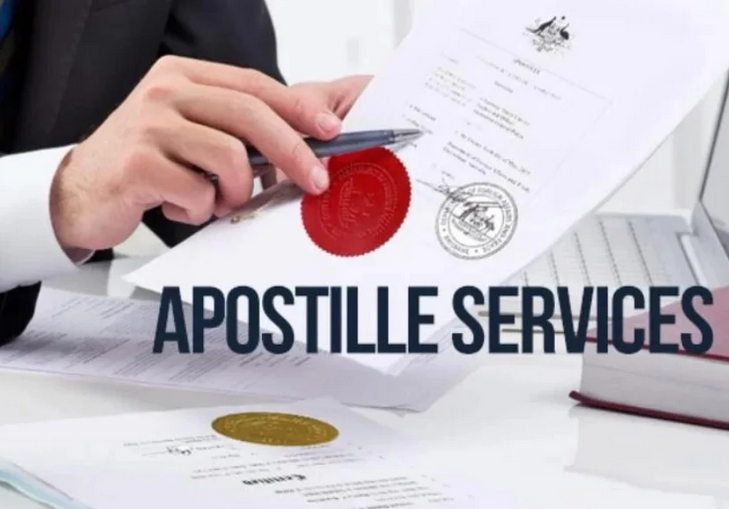Understanding the Apostille Process: A Comprehensive Overview to International Record Authentication
Navigating the elaborate landscape of international paper authentication can be daunting without a clear understanding of the apostille process. This guide carefully describes the essential steps, from determining which papers require certification to submitting them for confirmation by the Competent Authority. Realizing the value of an apostille and recognizing possible pitfalls, such as incomplete submissions and language barriers, can substantially streamline the verification trip. What precisely defines an apostille, and why is it so essential for papers predestined for Hague Convention countries? These questions develop the structure of our exploration into this essential lawful procedure.
What Is an Apostille?
An apostille is a main accreditation that validates the credibility of a paper for usage in an additional country. This qualification, issued by a marked authority in the country where the paper originated, makes sure that the document is recognized as valid and genuine in the worldwide arena. The procedure of getting an apostille entails numerous steps, including the confirmation of the paper's trademarks, seals, and stamps by ideal governmental bodies.
The apostille offers as a worldwide recognized kind of verification, enabled by the Hague Convention of 1961. This treaty, officially called the Hague Convention Abolishing the Need of Legalisation for Foreign Public Documents, systematizes the process of file qualification among participant countries. The apostille itself is a standardized certificate which contains particular details, such as the issuing authority, the nation of beginning, and the date of issuance.
It is necessary to keep in mind that not all records are eligible for an apostille. Normally, public documents like copyright, marital relationship licenses, court orders, and academic diplomas receive this qualification. Private records, such as contracts and agreements, may need notarization and added steps to certify.
Relevance of Apostille
Recognizing what an apostille is establishes the phase for valuing its value in international dealings. houston tx apostille. An apostille, basically a type of certification issued by an assigned authority, validates the credibility of a document for use in foreign nations that are signatories to the Hague Apostille Convention. This standardized process removes the need for additional legalisation by embassies or consular offices, therefore simplifying worldwide transactions
The relevance of an apostille can not be overstated. It makes sure the credibility and acceptance of necessary documents-- such as copyright, marriage licenses, and educational diplomas-- across borders. For companies, it helps with the smooth conduct of international profession, mergings, and click to find out more purchases by providing a trusted method of document confirmation. This reduces governmental obstacles, conserving both time and sources.
Additionally, an apostille improves lawful protection and conformity. Federal governments and institutions can with confidence count on the credibility of documents birthing an apostille, alleviating the danger of fraudulence and misrepresentation.
Documents That Require Apostille
When participating in international purchases or legal matters, details files frequently require the verification given by an apostille. This ensures their acknowledgment and acceptance in countries that are signatures to the Hague Apostille Convention. Commonly, personal documents such as copyright, marriage certificates, and death certificates require an apostille, specifically when they are made use of for procedures like migration, marital relationship abroad, or global probate issues.
Educational papers are an additional category often requiring apostilles. Diplomas, transcripts, and scholastic records commonly need this authentication for functions such as seeking more education and learning, employment, or professional licensing in an international nation (houston tx apostille). This action ensures that the records are acknowledged as reputable and valid
Lawful papers, consisting of powers of lawyer, affidavits, and court orders, also frequently require apostilles. Business records such as certifications of incorporation, bylaws, and business agreements might require an apostille to help with worldwide trade, develop international branches, or take part in cross-border lawful procedures.
Steps to Obtain an Apostille

Obtaining an apostille involves a multi-step procedure that makes sure the credibility and approval of your documents in international countries. The preliminary action is recognizing which documents require an apostille. houston tx apostille. Common documents consist of birth certifications, marriage licenses, academic records, and company papers
When determined, Continue the paper needs to be licensed by the proper providing authority. This could entail notarization by a notary public or verification by a local or state official, depending on the kind of file. After qualification, the document needs to be sent to the marked Competent Authority in the record's country of beginning. In the click over here now United States, for instance, this is commonly the Assistant of State's office for every state.
The submission process normally requires a finished application, the initial document, and a cost. Some jurisdictions might use the option of expedited processing for an extra charge. Upon effective verification, the Competent Authority will affix the apostille certification to the paper, consequently verifying its authenticity.
Usual Challenges and Solutions
Browsing the apostille procedure can present several typical difficulties that, if not appropriately addressed, may delay or complicate document authentication. Each country has particular requirements for the types of records that can be apostilled, and any deviation from these can result in being rejected.
An additional usual obstacle is comprehending the different processing times. Handling times can differ significantly in between countries and even in between different regions within the same country. It is vital to make up these variants when preparing the apostille process to prevent unexpected delays.
Furthermore, language barriers can pose substantial challenges. Documents in an international language usually require qualified translations, and any kind of mistakes in translation can result in more problems. Involving a professional translation solution can alleviate this threat.

Verdict
Understanding the apostille process considerably boosts the effectiveness of global record authentication. By comprehending the requirement of identifying and certifying needed records, and browsing the entry to the Competent Authority, the procedure becomes more manageable.